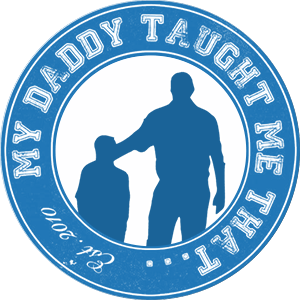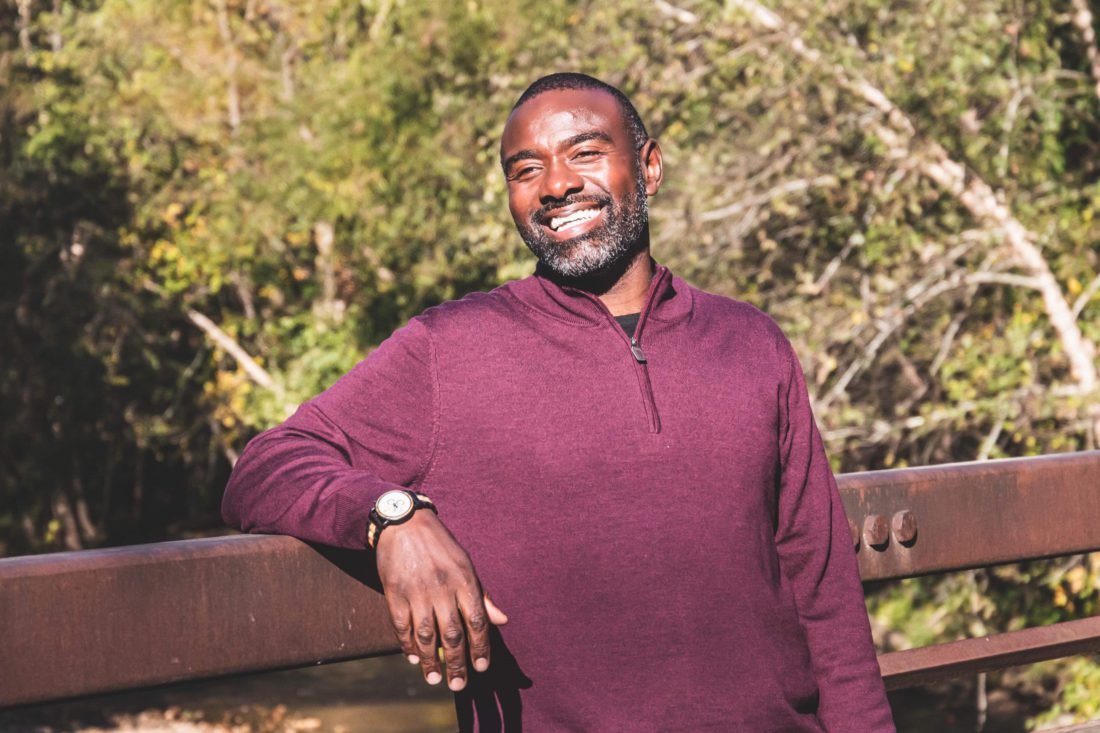"Full Circle" - Meet MDTMT Board Chair, Stephen Smith
Entrepreneur Stephen Smith knows there is much work to be done and many seeds to be planted before any harvest is ever reaped. And he knows it deeply, literally and figuratively. Stephen readily shares examples from his life as a teen, his adult professional life owning a landscaping business, and his personal life mentoring youth and serving as Board Chair of My Daddy Taught Me That. He notes that time and planning - put in upfront - can make the difference in achieving goals, building relationships, and creating lasting change in the lives of individuals and an entire community. Stephen often reflects on the “full circle” of it all - our interdependence as human beings and prioritizing the foundation of strong families and communities to sustain the principles of respect and relationships in every aspect of life.
Along with his role as Board Chair for MDTMT, Stephen pours into the youth his wisdom about business ownership and the importance of understanding the power of economics. He explains, “Entrepreneurship has always been a part of my life. I had family members who were entrepreneurs, and my father used to always lecture me about business. He wasn’t a business owner at the time and wouldn't have used the word “entrepreneur,” but he understood the fundamentals and importance of that world and would share tapes and CDs with me about how to become a business owner.” By allowing the youth in MDTMT to work as paid interns with his business - M.S. Lean Landscaping - Stephen affords many opportunities for the young men beyond making a paycheck at the end of the week. He intentionally reinforces what the youth are working on in school. “Kids might not understand the importance of a fraction in the classroom. But say you’re out on a worksite, and before you cut something, you show them why it has to be precisely 4 feet 6 ¼ inches. They quickly see how important math can be! Or you have to fill up the gas tank of your equipment, and gas is $4 a gallon. How much money will you need? It makes math practical, and the boys begin to understand that they’re actually interacting with it every day. It’s experiential, and school today so often is not.”
Long before working on a business plan with a teen who has entrepreneurial goals, Stephen says it’s vital to start slow and small. “It starts with a personal budget and the choices we make. It’s a form of discipline to learn to work hard and then not give all your money away. To realize you have choices about how much to spend on shoes, for example, and also you have choices about where to spend your money, there’s real power in that,” he says. Stephen continues, “Economics is practically the heartbeat of America, and it’s a matter of survival in many neighborhoods. The rotation of the dollar within any community strengthens it - say this person has a grocery store, this neighbor is a mechanic, this one has a barber shop; communities with strong economic systems thrive. Without business ownership, money flows out of poor communities. It’s a vicious cycle, but I know we can help break it.”
There’s no doubt that business is about dollars and cents, but with over a decade of successful business ownership under his belt, Stephen is able to offer MDTMT’s youth much more valuable insight, the kind not often found in a textbook. He says, “At its surface, business is about supply and demand and making a profit, but deeper down, it’s also about relationships, value and respect. If you don’t conduct business with those key components, nine times out of 10 people aren’t going to even want to do business with you.” Offering value and respect to customers and yourself, as a community member and a professional, are essential aspects of the sustaining, full-circle relationships Stephen has a knack for spotting and developing.
Stephen speaks highly of community resources for entrepreneurs, many of them free, in and around Asheville. (Mountain BizWorks and OnTrack Financial, to name a few.) “It’s one thing to have resources; it’s another thing for people to know where and what they are and who has access to them. That’s where it starts. It starts with knowing, so I make sure our young people know,” he says. He encourages youth to accept support while not sugar-coating the competitiveness of the business world and the value of self-improvement and accountability. “While we are all connected,” Stephen says, “we are also each responsible for doing what we need to do, or work on, to be the best versions of ourselves.” Stephen values teaching youth about the trades and careers that don’t necessarily require a 4-year college degree. “There are so many opportunities if you become an expert in a trade. And for now, trades are also something that AI isn’t taking over,” Stephen says. And he reminds the youth of MDTMT that starting a business is not the only way to be entrepreneurial-minded. He says, “There are many ways to get into business besides starting and running one. You could invest in a business in your community, make an agreement, sort of like stocks or mutual funds. With creativity, there are so many ways to strengthen the economics of our communities.”
Harnessing the power of relationships alongside strong principles of respect, honesty, accountability, and teamwork - Stephen has hope and proof that supportive business circles and hard work can strengthen lives, communities, and our country. “It’s a lot of work, but without it, nothing in our society will work well for long. It’s important to me to show our youth the difference they can make in their communities and how economics and business ownership are foundational.”






